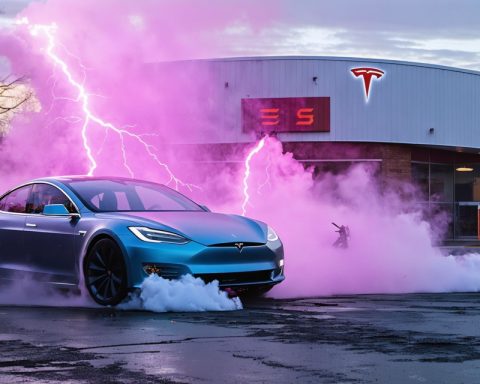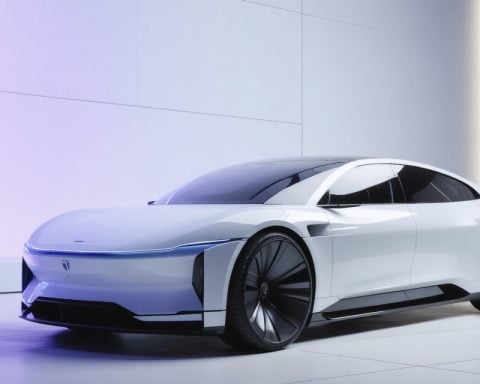Nvidia (NASDAQ:NVDA) has been a powerhouse in the stock market over the past two years, propelling the S&P 500 to new heights. The company, a leader in artificial intelligence (AI) technology, saw its stock skyrocket by 174% this year alone, following a spectacular 240% increase the previous year. Such impressive growth has left investors wondering whether the momentum can continue into 2025, especially with new challenges on the horizon.
While Nvidia enjoys robust opportunities in data centers and potential growth in consumer markets, the emergence of strong competitors and geopolitical uncertainties present significant hurdles. The semiconductor market is becoming increasingly crowded, with firms like Advanced Micro Devices (AMD) and Marvell Technology (NASDAQ:MRVL) making strides in AI chip development. This intensified competition could impact Nvidia’s market dominance.
Despite these challenges, demand for Nvidia’s products remains exceptionally high. The anticipated release of the game-changing Blackwell chip is already generating excitement and is poised to meet the vast needs of data centers. Taiwan Semiconductor Manufacturing is set to boost production to meet this demand, promising a lucrative year ahead for Nvidia.
However, Wall Street is keenly observing Nvidia’s growth trajectory, which, while impressive, may slow down. The company’s earnings per share growth, which peaked significantly, is expected to moderate in the coming fiscal years, potentially affecting stock performance.
Overall, while Nvidia remains a formidable player in the AI landscape, maintaining its staggering growth pace might prove challenging as it faces a dynamic and competitive market environment.
Nvidia’s Next Moves: Will Growth Sustain Amidst Rising Competition?
Nvidia has been a titan in the stock market, largely due to its advancements in artificial intelligence (AI) technologies. However, as Nvidia looks to the future, several factors could influence its trajectory, providing valuable insights for investors and industry observers.
Features and Innovations
Nvidia’s upcoming “Blackwell” chip represents a significant innovation in AI processing, tailored specifically for the growing demands of data centers. This chip is designed to enhance performance and efficiency, meeting the needs of cutting-edge applications in AI and machine learning sectors. Such advancements underscore Nvidia’s commitment to staying at the forefront of AI technology, despite increasing competition from companies like Advanced Micro Devices (AMD) and Marvell Technology.
Market Analysis and Competition
The semiconductor market is rapidly evolving, with Nvidia facing heightened competition. Competitors like AMD are making notable progress in AI chip development, which presents a challenge to Nvidia’s market dominance. Additionally, as geopolitical tensions and supply chain issues persist, companies are forced to navigate a complex global landscape. Link name
Predictions and Insights
While Nvidia’s stock experienced extraordinary growth in recent years, analysts predict that earning growth rates might stabilize. This expectation stems from several factors, including market saturation in key AI segments and a strategic focus on hardware like data center solutions. The moderation in earnings growth could impact Nvidia’s stock performance, but it also may signify a more sustainable growth path as the company adapts to a dynamic market.
Sustainability and Security Aspects
Nvidia is making strides toward sustainability by adopting more energy-efficient computing solutions and encouraging environmentally-friendly practices in semiconductor manufacturing. Additionally, security remains crucial, with Nvidia investing in technologies that protect its infrastructure and data integrity against cyber threats.
Pricing and Consumer Markets
As Nvidia launches new products, pricing strategies play a pivotal role in maintaining its competitive edge. By balancing innovation with cost-efficiency, Nvidia can expand its reach not only in enterprise markets but also among everyday consumers. The success of Nvidia’s strategies in penetrating consumer markets with AI-integrated products can further bolster its market position.
Conclusion
Nvidia remains a formidable player, with both exciting innovations and challenges ahead. As its growth trajectory shifts, observing its strategic maneuvers will be crucial. Investors and tech enthusiasts alike are watching to see how Nvidia navigates these complex dynamics, ensuring sustained growth in an increasingly competitive and technologically evolving landscape.





















